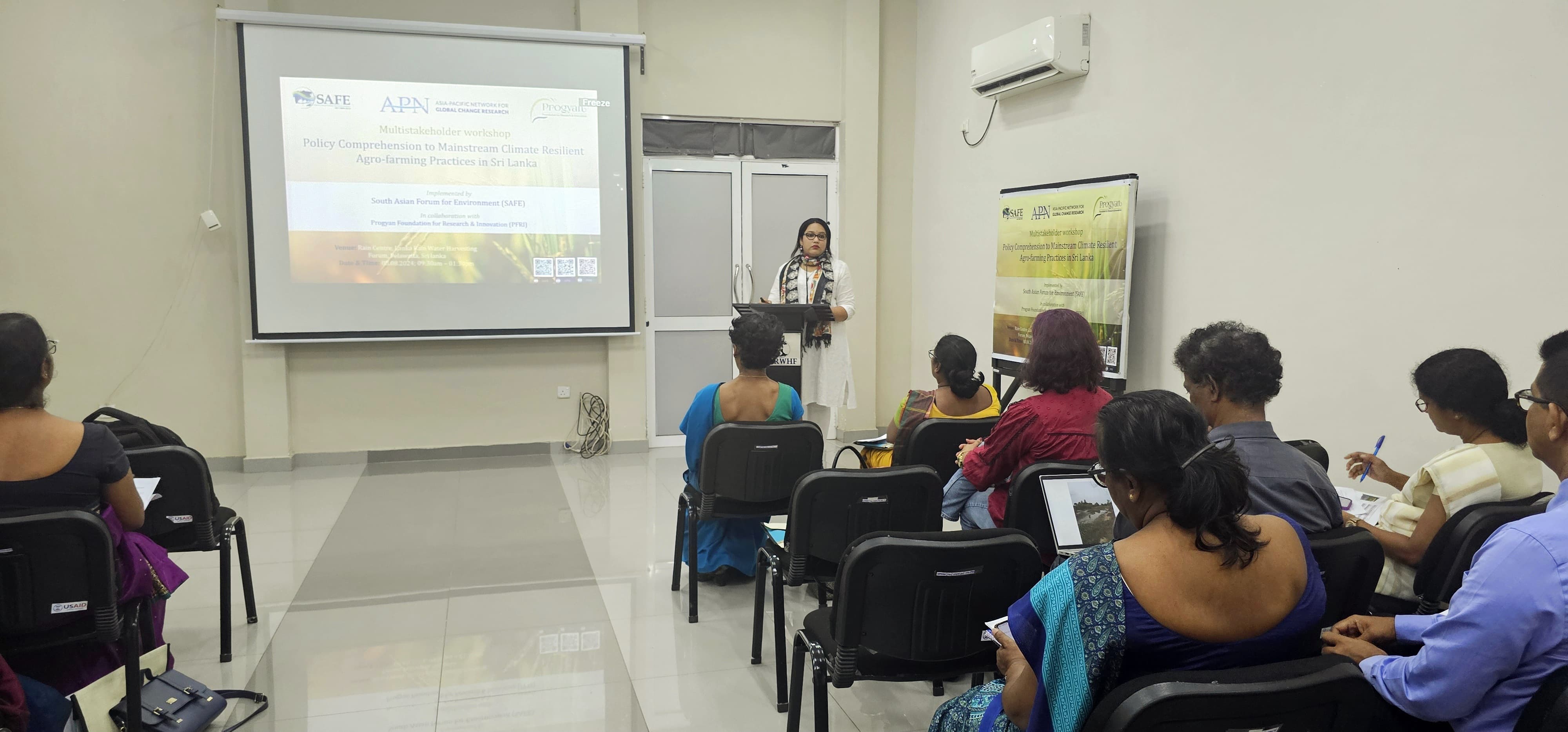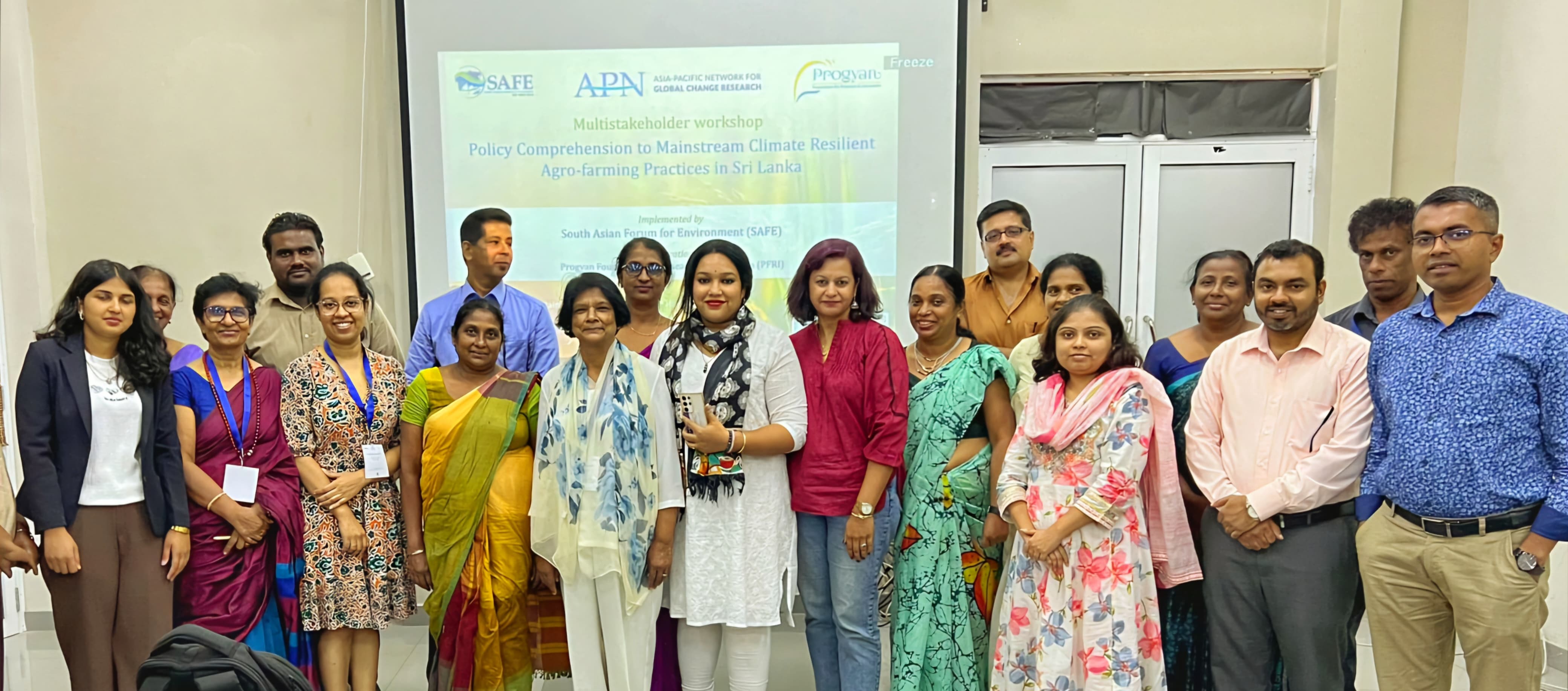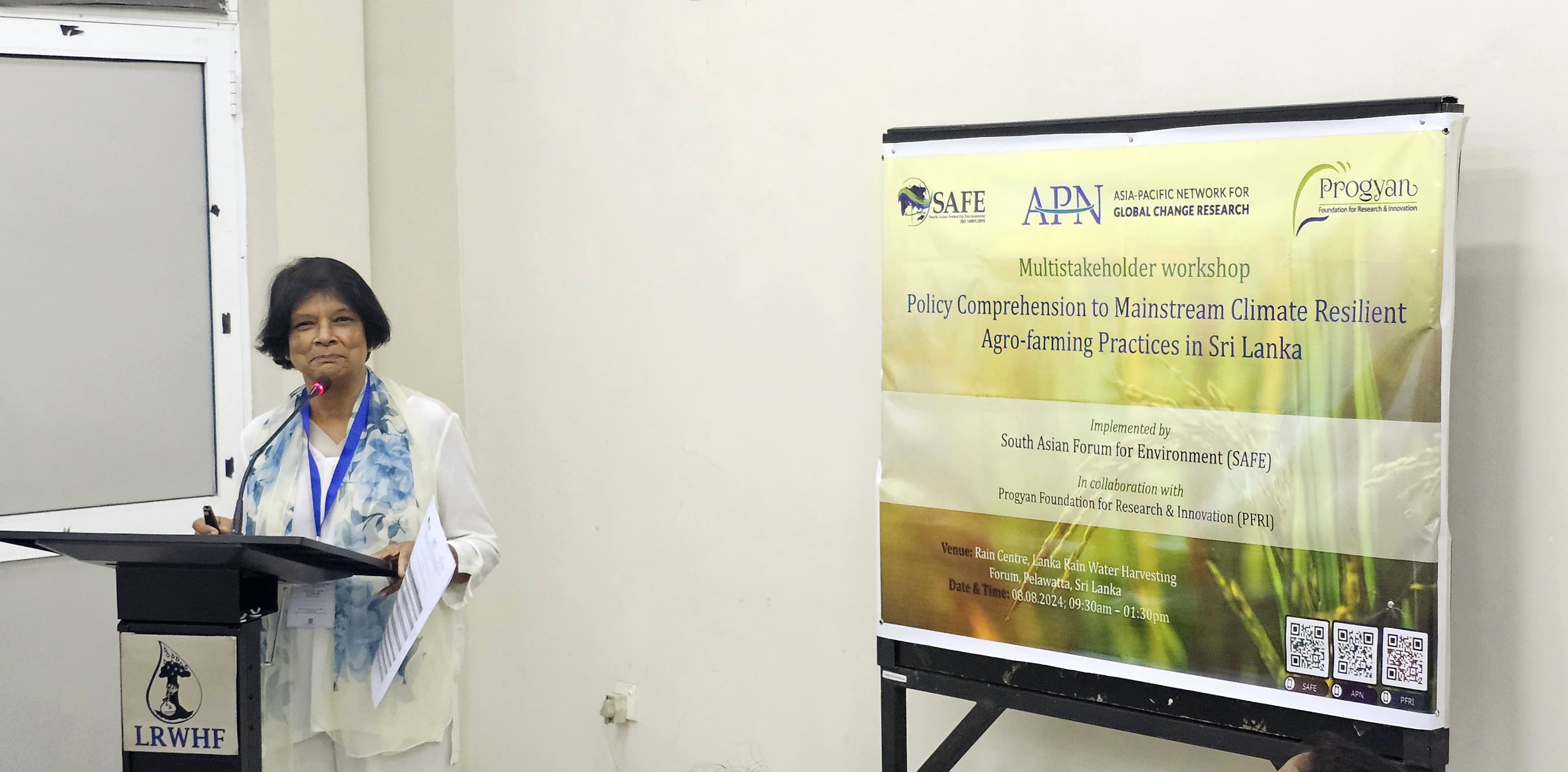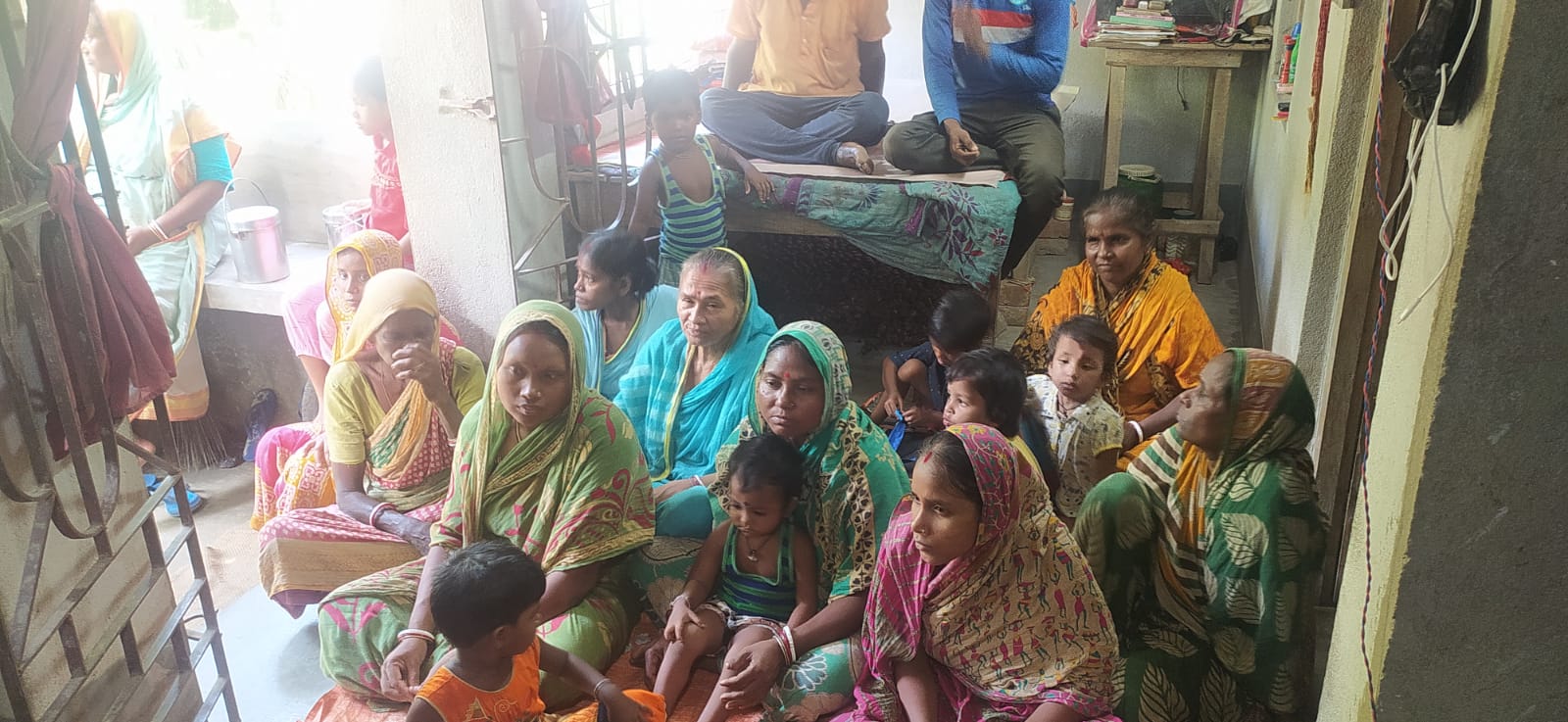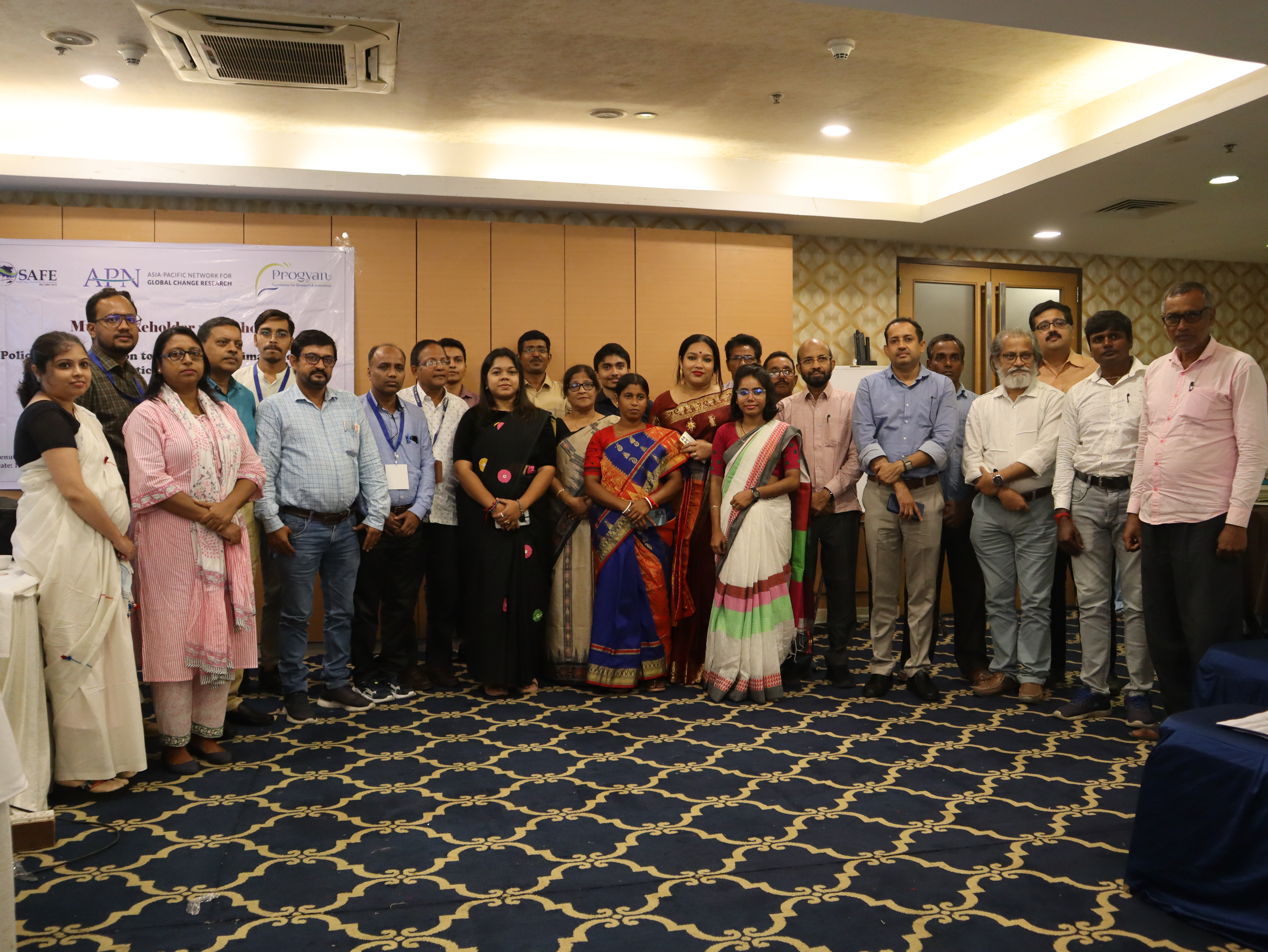
Enabling Stakeholder Participation and Applied Research in Policy Comprehension to Mainstream Climate Resilient Agro-farming Practices in National Climate Agenda (ESPAR) – Supported by Asia Pacific Network (APN)
Partners
This collaborative project unites expertise from four South Asian countries—India, Bangladesh, Sri Lanka, and Pakistan. The principal investigator from India leads with SAFE and PFRI, working alongside Bangabandhu Sheikh Mujibur Rahman Agricultural University (BSMRAU) from Bangladesh, the Ministry of Environment and Wayamba University’s Department of Agribusiness Management in Sri Lanka, and the Department of Economics at FUUAST in Pakistan.Project description
This project is driven by the exigent need to tackle the rising food insecurity and poverty faced by coastal communities of South Asia impacted by climate change. These communities are becoming increasingly vulnerable due to changing climatic conditions, which threaten their livelihoods and well-being. Addressing these challenges is essential for fostering resilience, promoting social equity, and ensuring sustainable development in the region. Therefore, this project seeks to address the issue of food insecurity among the coastal communities of four South Asian countries, namely, India, Bangladesh, Sri Lanka, and Pakistan. The initiative emphasizes community engagement and knowledge-sharing to foster resilience and adaptability. It aims to develop effective strategies that promote sustainable livelihoods and mend the existing gaps in agricultural policies, contributing to a more resilient agricultural landscape in the region.Objectives
1. Identify synergies and trade-offs between climate-resilient agricultural policies and practices in vulnerable coastal landscapes.2. Conduct field-based empirical research at the community-ecosystem interface to evaluate practice gaps.
3. Mainstream resilient community farming practices in coastal socio-ecological production landscapes.
Expected Outcomes
1. Strengthened food security and reduced poverty for coastal communities in South Asia, enhancing resilience to climate impacts in India, Bangladesh, Sri Lanka, and Pakistan.2. Development of adaptive, community-driven strategies for sustainable livelihoods, fostering knowledge-sharing and local engagement.
3. Support for policy improvements toward a climate-resilient agricultural landscape, promoting social equity and sustainable growth for vulnerable communities.
